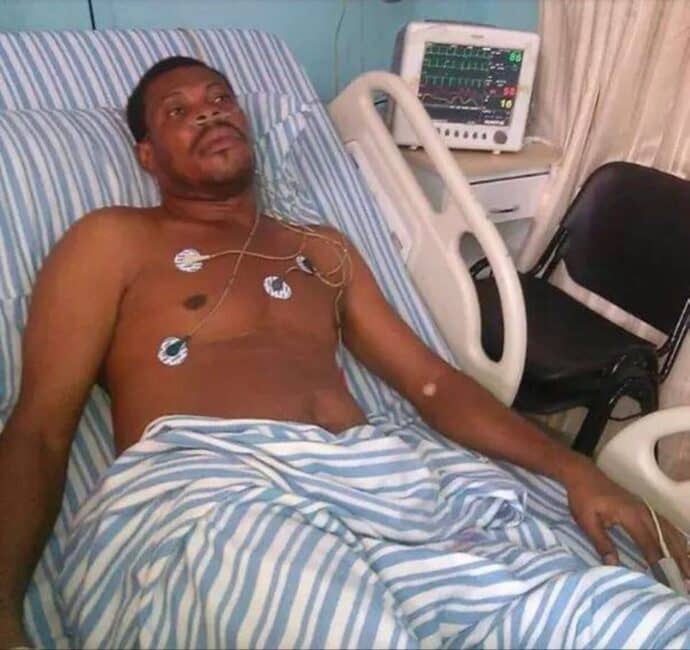Parliament has passed the Criminal Offences (Amendment) Bill 2022 into law, abolishing the death penalty from the statute books.
When assented to by President Nana Addo Dankwa Akufo-Addo, the new law will amend the Criminal Offences Act,1960 (Act 29) to change the punishment of the death penalty to life imprisonment and to provide for related matters was a Private Members’ Bill initiated by the National Democratic Congress (NDC) Member of Parliament (MP) for Madina, Francis-Xavier Sosu.
The overarching objective of the new law is to reform the criminal justice system of Ghana to meet the needs of an emerging society and add the country to the League of Nations that has moved away from capital punishment.
The Speaker, Alban Kingsford Bagbin, referred it to the Committee on Constitution, Legal and Parliamentary Affairs which presented its report to the entire House on Tuesday.
Consequently, the Bill was put to a voice vote and successfully approved by the House.
Other legislators who threw their weight behind the Bill were the NDC MP for Akatsi South, Bernard Ahiafor; the NDC MP for Bolgatanga East, Dr. Dominic Ayine; the NDC MP for Builsa South, James Agalga; the New Patriotic Party (NPP) MP for Asante Akim North, Andy Appiah-Kubi; the NDC MP for Talensi, Benson Baba Tongo; the NDC MP for Krachi West, Helen Adwoa Ntoso, and the NDC MP for Bawku Central, Mahama Ayariga.
Those who opposed the motion were the NPP MP for Tolon, Habib Iddrisu; the NDC MP for Zebilla East, Cletus Avoka, and the NPP MP for Hemang Lower Denkyira, Bright Wireko-Brobbey.
Death penalty
The death penalty, also referred to as “capital punishment”, is the state-sanctioned execution of individuals convicted of specified offenses.
In Ghana, the death penalty is imposed after a conviction for murder, attempt to commit murder, genocide, treason, high treason, and or piracy and smuggling of gold or diamond.
By section 304(3) of the Criminal and Other Offences (Procedure) Act, 1960 (Act 30), execution of the death penalty may either be by hanging or shooting by firing squad.
The imposition of the death penalty as punishment takes its root from the retributive theory of punishment.
The theory is premised on the principle of an “eye for an eye and “a tooth for a tooth”, thus, if a person commits murder, the person must be punished in a manner proportionate to the crime of killing another person.
Motion
Moving the motion for the Bill to be read the second time, Mr. Sosu said out of about 56 Commonwealth countries, only seven countries still retained the death penalty.
He said about 49 had either effectively abolished capital punishment or were “abolitionists in de facto.”
He told the House that since independence in 1957, Ghana had executed 49 persons either by firing squad or by hanging, with most of those executions happening during military regimes.
With the last execution happening on July 7, 1993, when 12 men were killed by the firing squad, he argued that the current position of Ghana was that of “abolitionist de facto.”
“In practice since 1993 to date, Ghana has not signed the death warrant to execute anyone and that is highly commendable,” he said.
He recalled how Ghana had made moves to abolish the death penalty, citing how the then NDC government commissioned 2010 the Constitutional Review Commission that recommended that the death penalty be replaced with life imprisonment.
He said the then government, through a white paper, accepted that recommendation but steps to address it were not complete until it lost power.
Since then, he said, there had been a political, religious, and judicial consensus for the abolition of the death penalty, with the current President openly endorsing the end of the use of the mandatory death penalty both at home and abroad.
“Mr. Speaker, all the consensus we built over the years supports the fact that it is time for Ghana to amend its laws so that it can align with our practices,” Mr Sosu argued.
Comply with treaties
Seconding the motion, the Ranking Member of the Committee on Constitutional, Legal, and Parliamentary Affairs, Mr. Ahiafor, who presented the committee’s report, said life lost could not be regained.
He cited a judicial principle that said: “It is better you leave 99 percent guilty persons free than to convict one innocent person.”
He argued that anytime the death penalty was carried out, those who were executed did not stand the chance to appeal their conviction even in the face of new evidence that might exonerate them.
With Ghana being a signatory of international human rights treaties and conventions that called for the abolition of the death penalty, Mr. Ahiafor said: “We must comply with the treaties and conventions”.
In his view, for three decades those who committed offenses for which the death penalty should apply did not suffer it because no President had ever been ready to append his signature for the person to be executed.
“So, in reality, it is converted to life imprisonment. So why should the death penalty still continue to be on our statute books?” he asked.
He, therefore, urged the House to adopt the committee’s report and pass the Death Penalty Bill into law.
I don’t support the death penalty
Contributing, Dr. Ayine, a former Deputy Attorney-General and Minister of Justice said he had personal reasons for not supporting the death penalty.
He shared the story of his elder brother who was sentenced to death and was put on death row at the Nsawam Medium Security Prison.
He recounted the harrowing experience his family went through as they all believed his brother was innocent but “we were helpless in the face of the law.”
Luckily for the family, he said former President Jerry John Rawlings gave him a pardon for him to rejoin the family.
Consequences
Opposing the motion, Mr. Avoka submitted that the arguments advanced in favor of the motion were “spurious and unmeritorious”.
He said while arguments had been for the one who killed to be spared of death, the victims had been overlooked.
“They did not balance the argument with the trauma, pains, and suffering families of a breadwinner or a loved one go through.”
He cited an instance where armed robbers could attack him at his residence at 2 a.m. to rape his partner and later kill him.
“Then this man has a right to live and I, who he took my life within 30 minutes, have no right to live?” he asked.
“Abolishing the death penalty has far-reaching consequences.”
“Mr Speaker, given the society we find ourselves in, it is premature now to go out and tell Ghanaians that if you kill anyone you will go to prison and after five years another government will come release you,” he argued.







